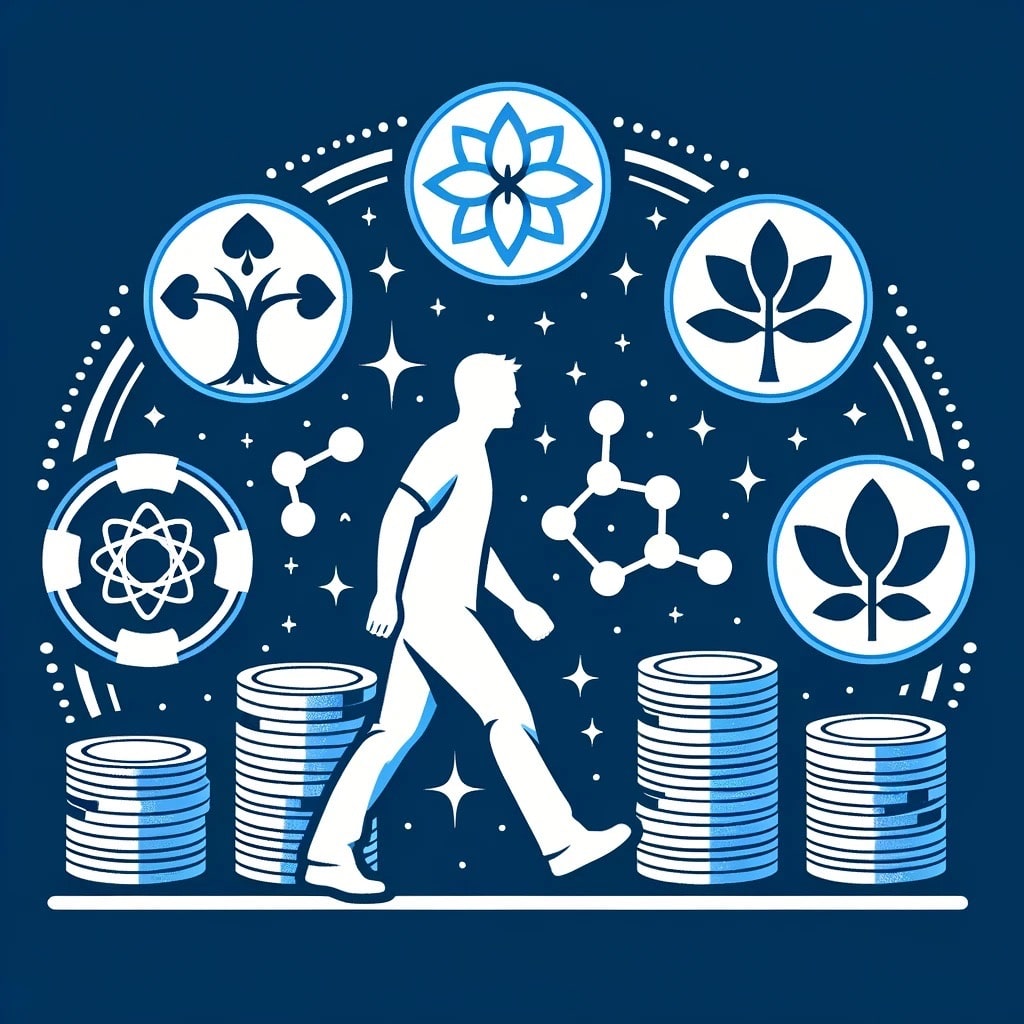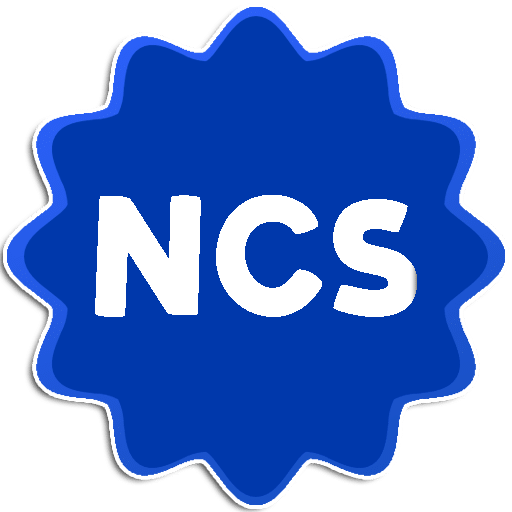Breaking the Habit: Top Activities and Strategies to Quit Gambling Addiction
Overcoming a gambling addiction is a challenging yet rewarding journey. This article is designed to guide you toward fulfilling activities that can assist your recovery.
Scroll down to learn about activities that are excellent for releasing dopamine - a naturally occurring brain chemical that can help you combat addiction and pave the way for a healthier, addiction-free life.


Understanding the Connection: Gambling Addiction and Dopamine
Dopamine is often called the "feel-good" neurotransmitter. It plays a pivotal role in our brain's reward system. It's the chemical messenger responsible for the euphoria we feel when we achieve a goal or receive a reward.
Produced from the amino acid tyrosine, which undergoes conversion to L-dopa and subsequently to dopamine, it's a driving force behind our motivation to perform tasks in anticipation of rewards. This motivation extends to complex behaviours, including problem gambling.
However, the relationship between dopamine and gambling isn't as straightforward as it seems. Let's delve deeper.
Dopamine and Addiction
While dopamine is synonymous with pleasure, it's a double-edged sword: just as it can motivate us to achieve positive outcomes, it can also lead us down the path of addiction.
Substances like cocaine, heroin, and even alcohol are known to release a surge of dopamine in the brain. This intense pleasure sensation can be so overpowering that we seek out these substances repeatedly.
Similarly, the thrill of gambling, the anticipation of a win, and the actual win itself can flood the brain with dopamine. Over time, as with addictive substances, the brain requires more frequent and higher stakes gambling to achieve the same dopamine "high."
This cycle can quickly spiral into an addiction, where the brain's wiring starts to change, making quitting even more challenging.
Essential Steps to Overcome Gambling Addiction
Before we outline activities to stop gambling addiction, taking these initial steps is vital:
- Acknowledge the Problem: The first step to recovery is admitting there's an issue. It's essential to recognise and accept the impact of gambling on your life and avoid denial.
- Reflect on Your Gambling Habits: Take a moment to analyse when, why, and how you gamble. Understanding the root causes can provide clarity on the way forward.
- Commit to Quitting: Set short-term - such as don’t gamble for one week - and long-term goals, and develop strategies to avoid potential relapses. Groups like Gamblers Anonymous can help.
Overcoming addiction is not a journey one should undertake alone. There are numerous tools and support systems available. Check out our in-depth guide on recovering from gambling addiction to get the lowdown on how to recover.
Embracing Activities to Combat Gambling Addiction:
Overcoming gambling addiction is not just about abstaining from the act itself but also about filling the void with positive and fulfilling activities. Engaging in activities that naturally boost dopamine can provide the same sense of reward and pleasure that gambling once did without the negative consequences.
By understanding and embracing these activities, you can redirect your energy and focus towards building a healthier, more balanced life.
Here are six transformative activities you can use to help your gambling addiction recovery:
1. Exercise Regularly:
Overview: Physical activity is a potent mood enhancer that releases endorphins, often referred to as the body's natural painkillers. These endorphins play a crucial role in reducing stress and anxiety, which can be triggers for gambling.
-
Types of Exercise:
- Aerobic Activities: Such as brisk walking, jogging, swimming, or cycling. These activities increase heart rate and can be easily incorporated into daily routines.
- Strength Training: Lifting weights or using resistance bands not only builds muscle but also boosts metabolism.
- Flexibility Exercises: Yoga or pilates can improve flexibility, posture, and mental well-being.
- Actionable Steps: Start with short sessions, gradually increasing the duration. Joining a local gym or sports club can provide motivation and a sense of community.
2. Prioritise Sleep:
Overview: Sleep is essential for cognitive functions, emotional well-being, and overall health. It plays a pivotal role in regulating neurotransmitters, including dopamine, with a lack of sleep found to disrupt our natural dopamine levels.
-
Tips for Better Sleep:
- Consistent Sleep Schedule: Go to bed and wake up at the same time every day.
- Optimise Bedroom Environment: Ensure a dark, quiet, and cool environment.
- Limit Screen Time: Studies have shown that the blue light from screens can interfere with melatonin production.
- Actionable Steps: Consider using sleep aids like white noise machines, blackout curtains, or sleep tracking apps to enhance sleep quality.
3. Listen to Music:
Overview: Music has the power to evoke emotions, memories, and even physiological responses. It can stimulate the release of dopamine by up to 9%, especially when listening to your favourite tunes or emotionally charged tracks.
- Music Genres to Consider: Classical, jazz, blues, or any genre that resonates with you.
- Actionable Steps: Create personalised playlists for different moods or activities. Attend live music events or consider learning a musical instrument.
4. Meditate:
Overview: Meditation is a practice that fosters mindfulness, reduces stress, and enhances mental clarity. Regular meditation can increase dopamine production, promoting feelings of peace and contentment.
Research by Kjaer et al. found that even inexperienced practitioners can gain a 65% boost in dopamine from a one-hour meditation.
-
Types of Meditation:
- Guided Meditation: Following a guide, often with imagery or music.
- Mindfulness Meditation: Focusing on the present moment without judgment.
- Actionable Steps: Start with short sessions, gradually increasing the duration. Use meditation apps or join local meditation groups for guidance and support.
5. Spend Time Outdoors:
Overview: Simple to achieve and free of cost, spending time in nature has a profound therapeutic effect on the mind and body. Exposure to sunlight increases the production of vitamin D, which in turn can elevate dopamine levels.
- Outdoor Activities to Consider: Hiking, gardening, bird-watching, or simply taking a walk in a park.
- Actionable Steps: Dedicate specific times during the week for outdoor activities. Consider joining nature clubs or groups to explore new places and meet like-minded individuals.
6. Pursue New Hobbies:
Overview: Engaging in new activities can provide a fresh perspective, a sense of accomplishment, and a dopamine boost. It's an excellent way to divert the mind from gambling urges.
- Hobbies to Consider: Painting, cooking, photography, writing, or any activity that piques your interest.
- Actionable Steps: Join hobby-specific clubs or workshops. Set aside dedicated time each week to hone your skills and enjoy the process.
By integrating these dopamine-boosting activities into daily routines, individuals can effectively replace the urge to gamble with healthier, more fulfilling pursuits.
Dietary Recommendations to Boost Dopamine:
What we consume plays a significant role in dopamine production. Here are some dietary tips to optimise dopamine levels and help your gambling addiction recovery:
- Increase Protein Intake: Proteins are rich in amino acids, which are crucial for dopamine production.
- Reduce Saturated Fats: Studies by Cone et al. found that excessive intake of high saturated fats can hamper dopamine signalling. Opt for healthier fat sources such as salmon, tuna, or dark chocolate.
- Limit Processed Sugars: These can disrupt dopamine levels and become addictive. It’s important that you don’t simply substitute one vice for another.
- Consume Probiotics: Research by Lerner, Neidhöfer, and Matthias has found that the brain and gut are closely linked. A healthy gut can influence brain function and dopamine production.
- Consider Velvet Beans: These beans are a natural source of L-dopa, a direct precursor to dopamine.
- Take Supplements if Necessary: Studies have shown a direct link between certain vitamins and minerals and dopamine production. Consult with a nutritionist for personalised recommendations.
A Day in the Life: Overcoming Gambling Addiction
Overcoming gambling addiction is a process that starts one day at a time. It requires dedication, self-awareness, and the integration of positive habits into your daily routine. We’ve put together a suggested daily routine to help you apply some of our suggestions and help continue the amazing progress you’re making:
Morning:
- 6:30 AM: Wake up and start the day with a morning exercise routine. This could be a brisk walk, a short jog, or a yoga session to release endorphins and set a positive tone for the day.
- 7:30 AM: Enjoy a protein-rich breakfast to fuel your body and support dopamine production.
- 8:00 AM: Dedicate 10-15 minutes for a mindfulness meditation session to foster clarity and reduce stress.
Afternoon:
- 12:00 PM: Have a balanced lunch with a focus on lean proteins and healthy fats. Consider adding foods rich in amino acids and avoid processed sugars.
- 1:00 PM: Take a short walk outdoors, soaking in the sunlight and enjoying the therapeutic effects of nature.
- 2:00 PM: Listen to your favourite music or a new playlist to elevate your mood and stimulate dopamine release.
Evening:
- 6:00 PM: Engage in a new hobby or activity. Whether it's painting, cooking, or photography, spend time honing your skills and enjoying the process.
- 8:00 PM: Have a light dinner, focusing on foods that support dopamine production. Consider incorporating velvet beans or other dopamine-boosting foods.
- 9:00 PM: Wind down with a short flexibility exercise session, like pilates or gentle yoga.
- 10:00 PM: Prepare for bed. Optimise your bedroom environment for sleep and consider using sleep aids like white noise machines or blackout curtains. Remember to limit screen time to ensure a restful night.
By integrating these activities and habits into your daily routine, you can create a structured and supportive environment that fosters recovery and well-being. Remember, the journey to overcoming gambling addiction is unique for everyone, so feel free to adjust this routine to best suit your needs and preferences.
Additional Resources: Blocking Gambling Sites
To further aid in your recovery, consider using software tools designed to block access to gambling websites and applications. Some reputable options include:
These tools can provide an additional layer of protection and help maintain your commitment to recovery.
Special Focus: Protecting Children from Gambling
It’s also vital to protect children and adolescents from the risks of gambling. For a comprehensive guide on how to stop children from gambling, visit here.
Final Thoughts on Activities to Stop Gambling Addiction
Overcoming gambling addiction is not easy. With the simple act of reading this guide, you are already taking the steps needed to overcome this problem and improve your life for the better.
By harnessing the power of dopamine-boosting activities, you can replace the allure of gambling with healthier, more fulfilling pursuits. The journey may be tough, but with determination, support, and a proactive approach, a balanced and addiction-free life is within reach.
Remember, every step forward is a victory.

